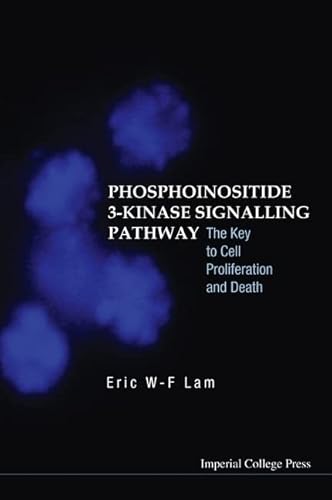Welcome to my review article on the Phosphoinositide 3-Kinase Signalling Pathway: The Key To Cell Proliferation And Death. In this article, I will delve deep into the intricate details of this pathway and explore its significance in cell proliferation and death.
The Phosphoinositide 3-Kinase (PI3K) signalling pathway is a crucial cellular pathway that plays a pivotal role in regulating cell growth, survival, and metabolism. It is involved in various physiological processes, including cell proliferation and apoptosis (cell death). Understanding the molecular mechanisms underlying this pathway is of great importance in the field of medicine and has led to the development of targeted therapies for numerous diseases, including cancer.
The PI3K signalling pathway starts with the activation of PI3K enzymes, which phosphorylate the lipid molecule phosphatidylinositol 4,5-bisphosphate (PIP2) to generate phosphatidylinositol 3,4,5-trisphosphate (PIP3). PIP3 then recruits downstream effector proteins, such as Akt (protein kinase B), to the cell membrane, leading to their activation.
Akt, once activated, initiates a cascade of events that promote cell survival and proliferation. It phosphorylates several targets involved in cell cycle regulation, such as p21 and p27, which inhibit cell cycle progression. Akt also activates the mammalian target of rapamycin (mTOR), a key regulator of protein synthesis and cell growth. Through its downstream targets, mTOR stimulates cell proliferation and inhibits apoptosis.
Furthermore, the PI3K signalling pathway is closely interconnected with other cellular signalling pathways, such as the Ras/MEK/ERK pathway, which regulates cell proliferation and survival. The activation of PI3K can lead to the activation of Ras, which in turn activates the MEK/ERK pathway, resulting in the promotion of cell growth and survival.
Importantly, dysregulation or aberrant activation of the PI3K pathway has been implicated in various diseases, particularly cancer. Alterations in key components of this pathway, such as PI3K, Akt, and mTOR, have been observed in numerous cancer types and are associated with increased cell proliferation, survival, and resistance to cell death. Therefore, targeting the PI3K pathway has emerged as a promising therapeutic strategy for cancer treatment.
In recent years, there have been significant advancements in the development of PI3K inhibitors, which specifically target components of the pathway and inhibit their activity. These inhibitors have shown promising results in preclinical and clinical studies, demonstrating their potential in treating various types of cancer.
In conclusion, the Phosphoinositide 3-Kinase signalling pathway plays a crucial role in regulating cell proliferation and death. Its dysregulation is implicated in numerous diseases, particularly cancer. Understanding the intricate molecular mechanisms underlying this pathway has paved the way for the development of targeted therapies that hold promise in the field of medicine. Further research and clinical trials are warranted to fully exploit the therapeutic potential of targeting the PI3K pathway in various disease contexts.
